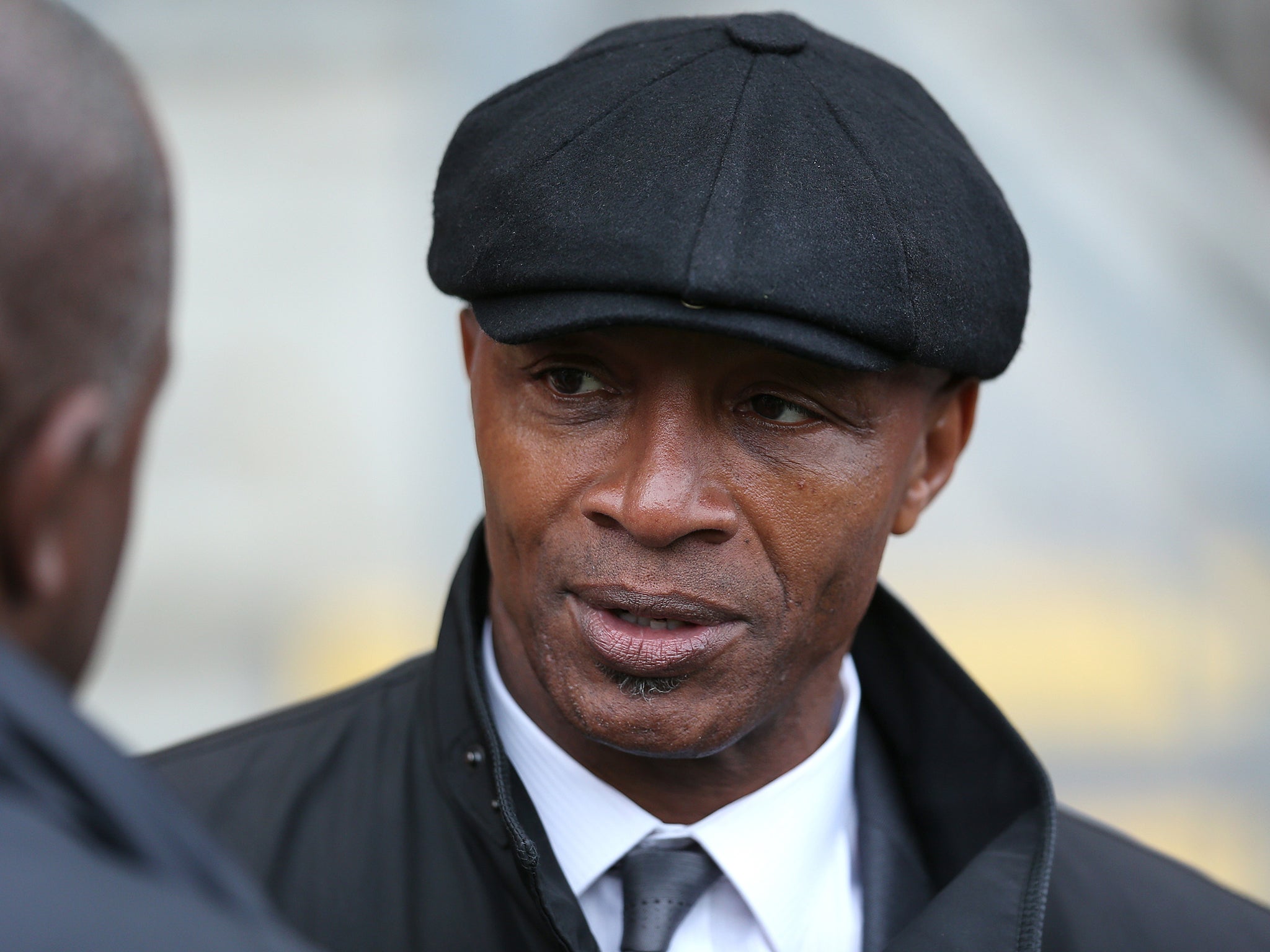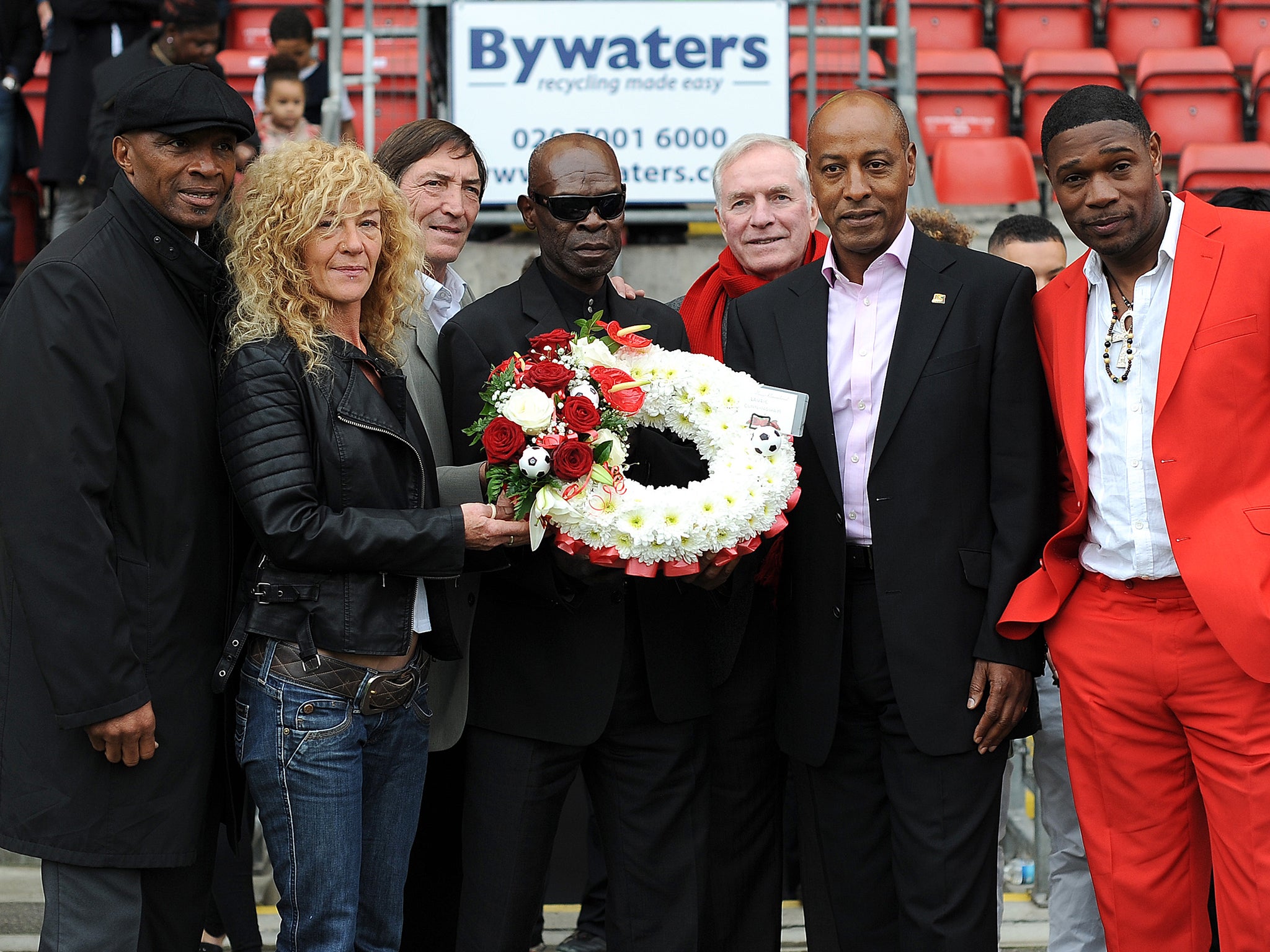Cyrille Regis: A trailblazer for black footballers who overcame racism and bigotry to inspire a generation
The former West Bromwich Albion player died from a heart attack, aged 59

Your support helps us to tell the story
From reproductive rights to climate change to Big Tech, The Independent is on the ground when the story is developing. Whether it's investigating the financials of Elon Musk's pro-Trump PAC or producing our latest documentary, 'The A Word', which shines a light on the American women fighting for reproductive rights, we know how important it is to parse out the facts from the messaging.
At such a critical moment in US history, we need reporters on the ground. Your donation allows us to keep sending journalists to speak to both sides of the story.
The Independent is trusted by Americans across the entire political spectrum. And unlike many other quality news outlets, we choose not to lock Americans out of our reporting and analysis with paywalls. We believe quality journalism should be available to everyone, paid for by those who can afford it.
Your support makes all the difference.“Trailblazer” is an overused word but the description fits Cyrille Regis perfectly. It was not just the rarity of his being a black footballer playing at the highest level, including for England, but also the manner in which he played that blazed a trail.
Blessed with a formidable natural physique he had pace, power and a fearsome shot, topped with an infectious smile. Breaking into English football at a time of high racial tension he endured appalling abuse but overcame the bigotry to inspire young black players, and play his own part in England becoming a more tolerant society.
As the news of his passing, at the age of 59, broke on Monday morning social media was full of messages of tribute, sadness and condolence from the generation of black players who followed him. Andy Cole, Mark Bright and Sol Campbell were among the first but there were also political figures from the black community who were inspired by Regis, such as MP David Lammy, plus white players and fans, of all races and clubs.
Discovered playing on the parks, and hardened by a period in non-league football, Regis had a long professional career and won the FA Cup with Coventry City in 1987. He will be best remembered, however, for his time at West Bromwich Albion when he made up a trio of black players, with Laurie Cunningham and Brendon Batson, who were at the heart of one of the most exciting teams of the era.
Albion manager Ron Atkinson, with his flair for publicity, christened the trio the Three Degrees and a photo shoot was arranged with the namesake pop group. The attention the three received, and their success, exacerbated the racism shown towards them. To have three non-white players in a leading team was unique at the time. Albion matches were frequently marked by monkey chants, bananas thrown on the pitch, and vile abuse. Even during the now iconic 5-3 win at Old Trafford in late 1978 the abuse was audible enough for commentator Gerald Sinstadt to refer to it.
Regis said afterwards that he used abuse to fuel his performances. In his autobiography Regis wrote: “The more abuse I received, the more I channelled my anger into my performances.” Nevertheless he admitted it hurt, and it was a shock when, before making his England debut, he opened “fan mail” in the dressing room to find inside one letter was a bullet. There was a message made up of letters cut out from newspapers which read: “If you put your foot on our Wembley turf you’ll get one of those through your knees.” Regis said he “laughed about it”, but he kept the bullet.
Regis won five caps for England, but only started one game. It was a thin haul for a player who was one of the leading centre-forwards in the old First Division for several seasons, but there was strong competition at the time and he was unlucky to be injured when set for a spot in the 1982 World Cup squad.
Born in French Guiana, in South America, Regis came to England as a five-year-old. His early years in the UK were tough as his father, a labourer, tried to find enough work to keep a large family fed and housed. At times the family were split up, with Regis and one brother spending nine months in a convent in Hampshire. Eventually the family were given a place on the Stonebridge Estate near Wembley and settled.

After leaving school Regis qualified as an electrician and played Sunday League football at Regent’s Park, near London Zoo. He was spotted by Molesey FC, of the Athenian League, signed for them, and was soon poached by Hayes. There he made an instant impact, but bigger clubs were hesitant about signing him as successful black players were uncommon. West Brom took the plunge, paying £5,000, with another £5,000 based on appearances.
The second cheque soon needed posting. Regis, still only 19, made an instant impact playing 34 matches in his debut campaign. He would be at Albion for just over eight seasons scoring 112 goals in 297 appearances, before moving to Coventry. There he finally won a medal, that FA Cup success over Spurs, and scored another 62 goals in 278 matches. Regis went on to play for Aston Villa, Wolves, Wycombe and Chester City, finally retiring at 38 after more than 600 professional matches and 150-plus goals.

Along the way Regis would later admit his personal life became a mess. Seduced by the temptations of fame he destroyed his first marriage. Prompted, in part, by the shock of Laurie Cunningham’s death in a car crash in Spain in 1989, Regis took stock and became a born-again Christian, sorting out his life even if it was too late to save his marriage. In later years he became a football agent, was at peace with himself, and justifiably proud of his role in easing the way for black footballers. In 2008 he was awarded the MBE for his charity work and his role in football. Words and honours, however, can only provide an outline of the man. To really judge the impact Regis had, and why, you had to see him play in his pomp.
Join our commenting forum
Join thought-provoking conversations, follow other Independent readers and see their replies
Comments